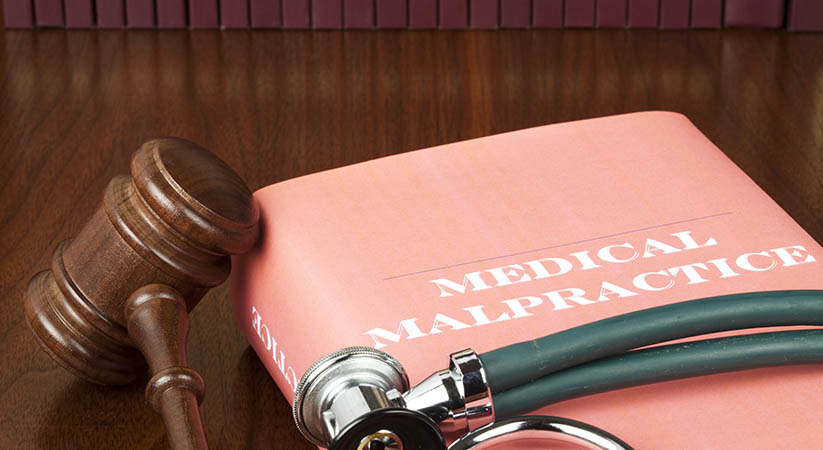Estate planning, settling beneficiaries, and end-of-life arrangements; seem like these tasks are only allocated for the affluent. However, it couldn’t be more wrong. Everyone should plan estate with the advice of an estate planning attorney and here’s everything you need to know about it.
Why Estate Planning Is For Everyone?
When the word “estate” is spoken, you might automatically think about mansions in every state, private jets, parties on yachts, and seasonal vacations all year round. Well, in reality, legal help can go a long way, and everyone can benefit from it, not just the rich.
Estate planning is essentially the process of writing “instructions” beforehand, regarding how you want your asset(s) and money to be dealt with after you’ve passed away. The word “asset” is quite general and can include anything and everything from a car, house, trust, bank account, or insurance, to several properties/lands or any other tangible thing of value.
Rich or not, everyone has to reach the end of the road someday, and as devastating as it is for your family, it’s also up to you, while you’re still alive, to think about how you want the rest of your loved ones to live comfortably and sustain. The gist of an estate plan is that your instructions are followed so that the concerned people get what they have been determined to receive and that no one else takes advantage of the situation.
It’s a safe and versatile way of ensuring that your family, including minors, is safe and set for the future. Estate plans have a lot of options that not only the wealthy, but people of any income class, can use and benefit from. An estate plan is essentially a path paved by you for the legal team to follow, without any problems or hiccups. It has clear instructions that can be hard to challenge in court unless you have a rock-solid reason.
Why You Should Plan An Estate?
Here are some very strong reasons why you should plan an estate.
Problems Along The Way
Even if you don’t think that you have enough “assets” to make an estate plan, it’s recommended that you still do. With an estate plan, things are pretty much streamlined. For instance, if you have a car in your name and didn’t get an estate plan, your family would still have to go to a court and request a probate for the car, after your death.
Probate is essentially a court’s order on how to divide the asset among the legal beneficiaries/heirs. A probate process can take anywhere between 6 months to a year to get wrapped, whereas an estate plan is quick. So, the difference is clear as day.
You Never Know
If you don’t consider yourself to be the stereotypical “rich”, then it doesn’t constitute that estate planning is not for you. You may be “rich” or “wealthy” at the moment, but you can be later in a few years or in the future. You, or anyone for that matter don’t know what the future holds.
So, it’s better to go for an estate plan, even if you have very little to declare because you can update it along the way, so there’s no harm in trying to secure the future of your family.
You Might Own Property
A lot of people don’t know this, but inherited property can also be included in the estate plan. Many people who inherit properties don’t know about it or they come to find out years later.
Well, that’s the sign to educate yourself on finances and succession-related things when it comes to property inheritance because chances are that you might get something from your parents, or immediate family.
You Still Need To Do Everything
If you think an estate plan is a lot of work, then not going for it doesn’t mean that you will be spared the mountain of legal documents that need preparation. Even if you don’t go for an estate plan, you still have to make a declaration for the time when you’re incapable of making decisions with a sound mind.
You also might need to make what’s known as an advance directive. It has instructions as to how you want to be cared for if you wish to be cremated or buried, and whether you want to be medically resuscitated or not. So, ask yourself: Is all of this worth it, or is an estate plan better suited? You might already know the answer to this question. You can also discuss things with an estate planning lawyer to make the right decision.
Make It Easier For Your Family
Naming and declaring beneficiaries is important, because if you don’t, then it will automatically go into the probate process after your death, and you know how lengthy that is. So, you should pull your family out of this misery and make things easier for the rest of the members.
With an estate planning process, you’re going to have all bases covered, from declaring beneficiaries to giving proper and legit instructions about everything, medical directives, and even appointing an executor for all of these things to flow smoothly.
Types Of Estate Plans
An estate plan consists of a few options, which are as follows:
Living Will
A living will is different from a normal will. A living will is also known as a medical directive or last testament and it goes into effect, as soon as the testator is unable to make decisions, or is medically, incapacitated. It is a set of instructions that determine what steps you want and do not want to take when it comes to certain medical conditions.
Consent for critical steps, DNR orders, funeral arrangements, etc., are some of the many things that a living will may include.
Power Of Attorney
Power of attorney (POA) is essentially a document that allows another person to make decisions on your behalf in case you’re incapacitated or unable to make decisions with a sound mind. In an estate plan, these decisions can either be related to health or finances.
A financial POA gives authority to an individual to make decisions regarding business transactions, necessary payments, etc. A health POA makes an individual an authority figure after the testator becomes incapacitated. A person with power of attorney is legally permitted to make vital medical decisions of yours.
Last Will
A last will is essentially a list of instructions and wishes that need to be followed after your passing. One of the most important things that will need to include is the guardianship of your minor children, if any. If you assign a guardian to your kids, who are legally minors, then the court proceedings to figure that out can be skipped altogether.
Also, make sure that your will is legally valid, otherwise all of your hard work is going to go down the drain. Experienced lawyers/attorneys can help you out in this regard because the definition of “legal will” is different in different states.
Conclusion
Estate planning doesn’t only apply to a small group of people with enormous wealth. Anyone can start planning an estate with the help of a wills and trust attorney. It’s will be fruitful in the long run.



